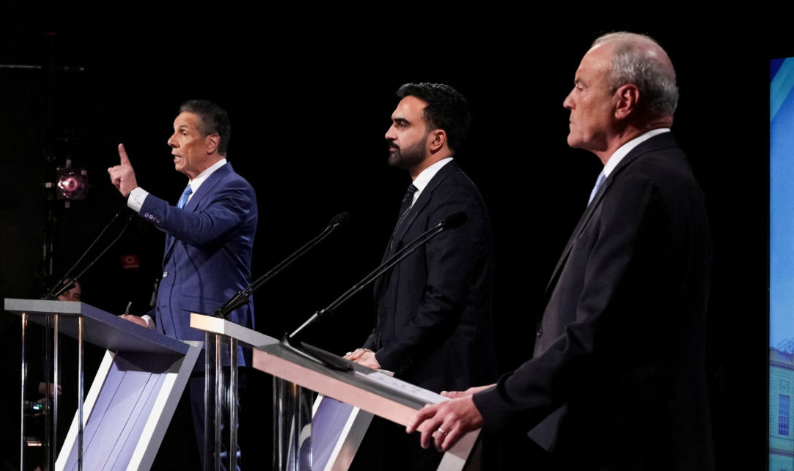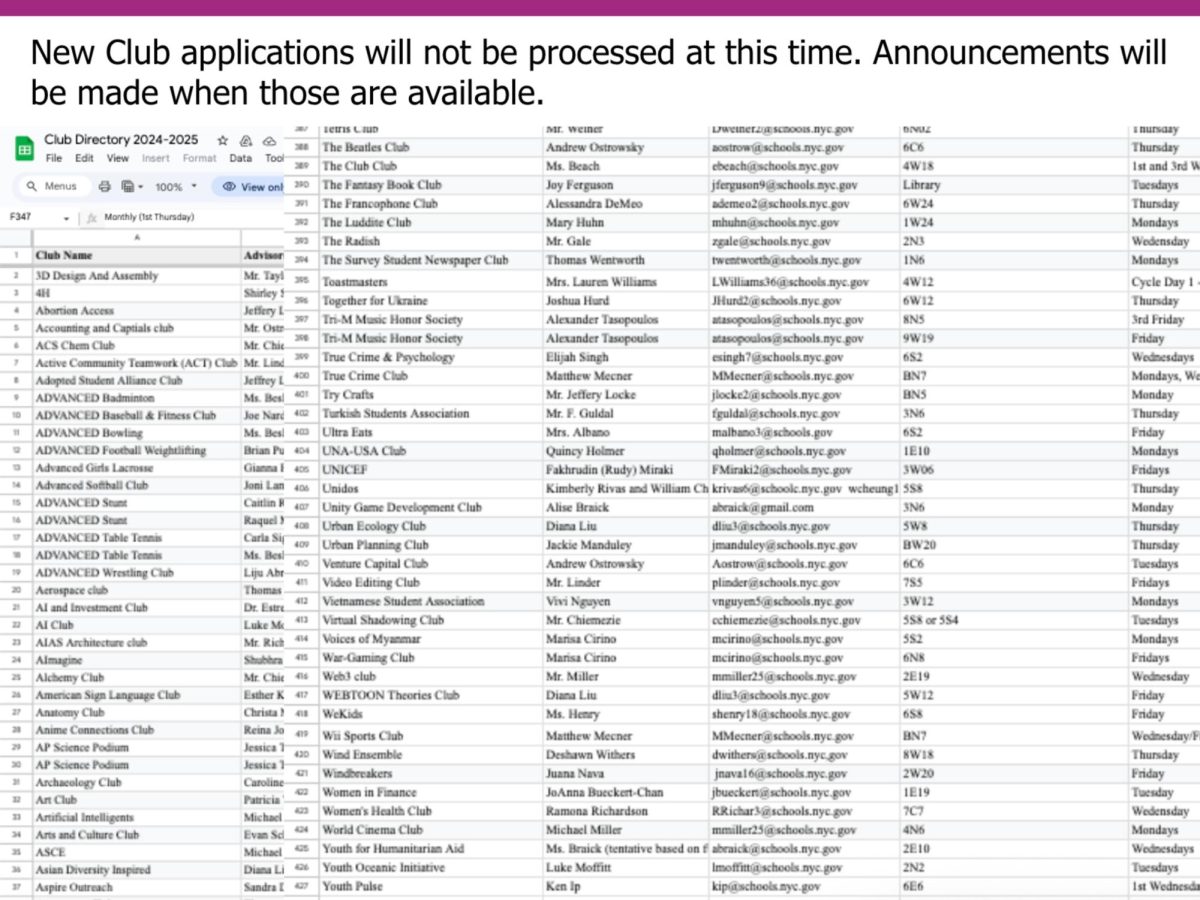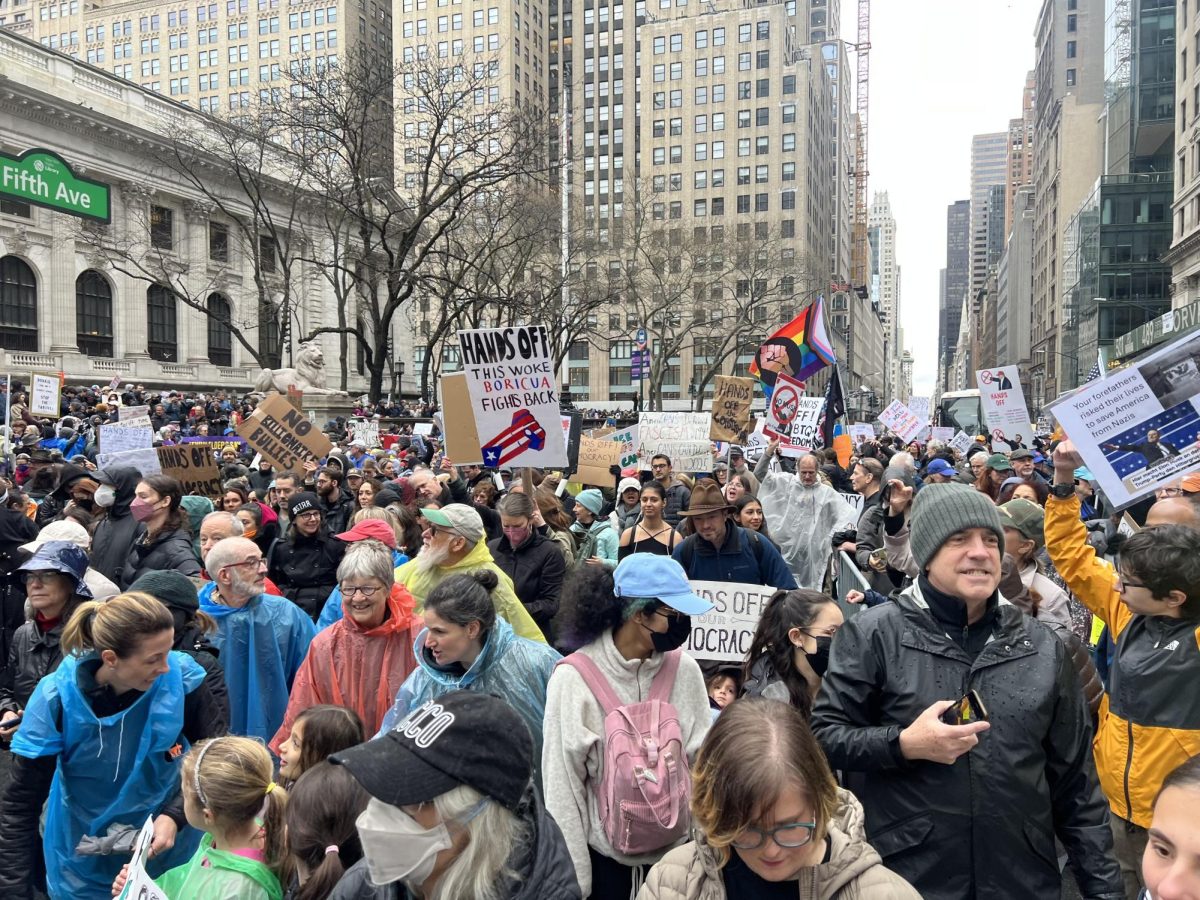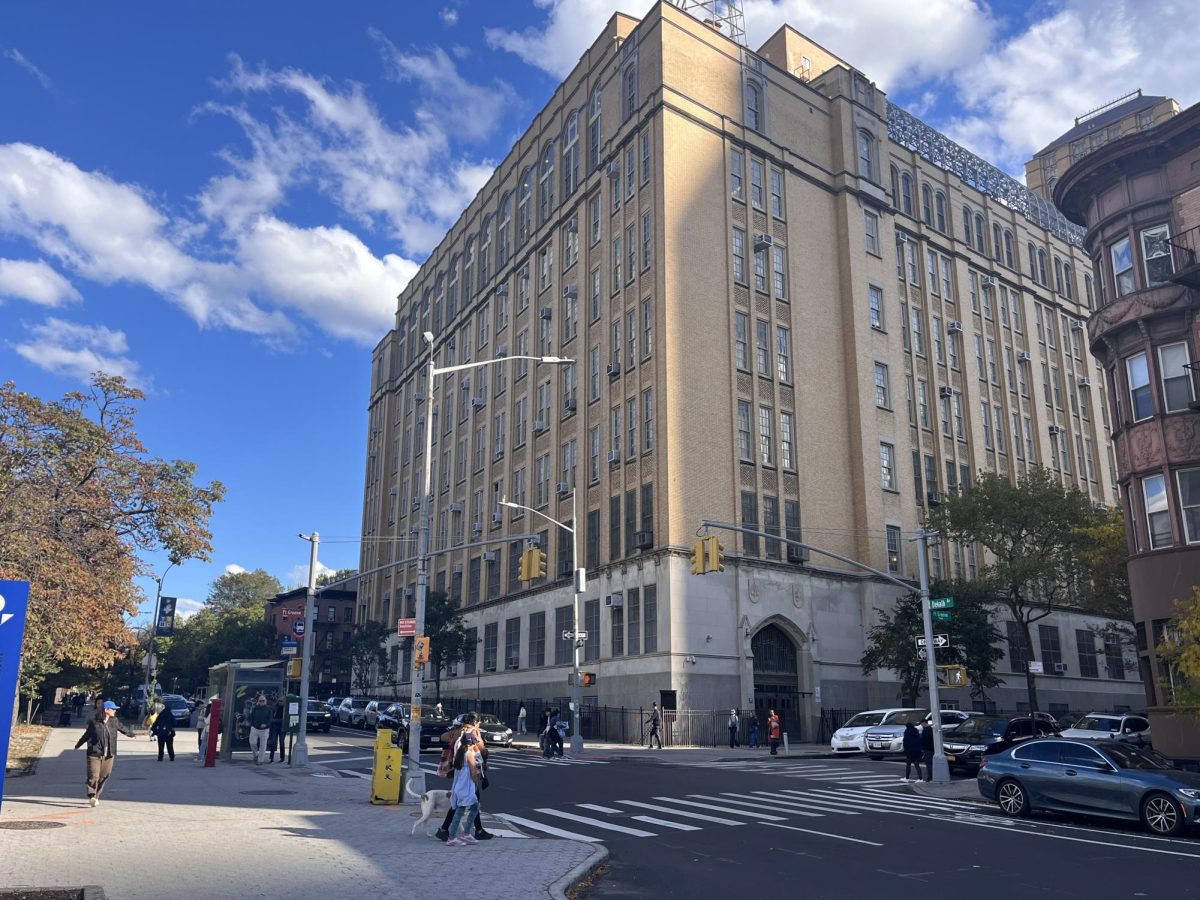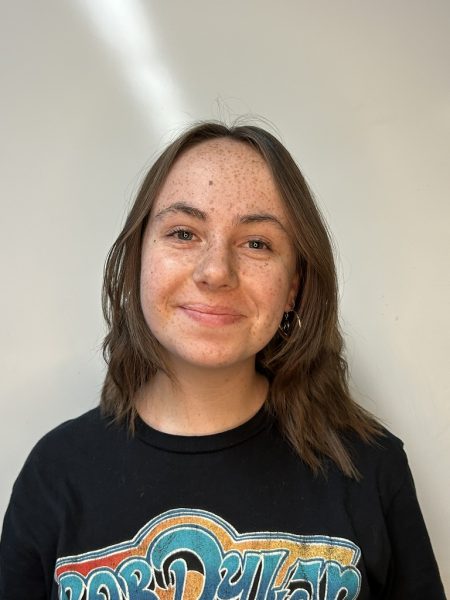Last year, the Brooklyn Tech Sustainability Committee, a branch of the Student Government Organization (SGO), launched an initiative to promote composting among the student body. As part of the effort, the school placed compost bins on all sides of the cafeteria and ensured that each classroom was equipped with a green recycling bin, devoted to paper, and a black trash bin for other waste.
The Sustainability Committee, comprised of both students and teachers, was officially recognized as a branch of the SGO during the 2022-2023 school year, after English teacher Mr. Richard Capozzi, the co-leader and advisor of the committee, raised the idea with the Center of Student Activities (COSA).
Since its founding, the committee has spearheaded numerous sustainability initiatives, including creating lids with paper slots to cover green classroom bins to remind students and staff to put their recyclable paper waste in the correct bin.
Last year, the committee put its energy towards helping students make informed decisions regarding food waste in the cafeteria. In January 2024, they helped custodial staff in the cafeteria place new brown compost bins for food waste next to the standard gray trash bins.
Although the bins are a recent addition, Brooklyn Tech has been on the Department of Sanitation of New York’s (DSNY) curbside composting route for over a decade. The route, established to collect food waste from NYC public schools, started in the 2012-13 school year in numerous schools across the five boroughs. In 2014, the DOE codified the program in Local Law 77, and it is now a part of GrowNYC’s Zero Waste Schools program.
Despite Tech’s long-standing participation in the program, the Sustainability Committee’s cafeteria initiative is the first tangible push towards actually composting food waste at Tech.
Miryam Shemwell, the Waste Operations Manager of the NYC Public School’s Office of Energy & Sustainability, explained that, as a part of the DSNY’s program, there are “solutions at the local level to divert and process the [food waste] into resources.”
“The compostable waste can be either brought to a composting facility or a facility that does anaerobic digestion,” said Shemwell. From there, the food waste is transformed into two different resources.
“Finished compost, a natural fertilizer, which is used in greenspaces in the city, which is distributed to community gardens and residents can pick them up as they want,” Shemwell continued. “The other resource created through anaerobic digestion is energy. This is used to power the plant itself, and is connected to the grid to power residential buildings.”

One setback to the program has been the enhanced cafeteria system that Mayor Adams implemented in public high schools across the city, which aims to boost efficiency and accessibility through grab-and-go style service.
While Ms. Shemwell supports the new system’s original intention, she regrets that the Mayor’s Office overlooked the sustainability implications.
“The issue with this is that it’s producing more waste than the regular cafeteria because of the individual packaging,” she noted.
In a poll of Tech students, only 23% of respondents said they sorted their food waste in the cafeteria. Mr. Capozzi said the Sustainability Committee is “trying very desperately to change the culture, but students need to respond to [their] initiatives.”
“We can’t do it alone,” he said. “It’s now a question of students’ goodwill to not only sort but also not waste.”
“Students are expected to sort the waste in the cafeteria, and custodial staff are expected to maintain the separation from the cafeteria to the curb, but they are not expected to go through the bags and sort them themselves,” Shemwell explained.
Environmental Sciences major, Tristan Albano (‘25), does not think students make much of an effort to sort their food waste in the cafeteria. He attributes this to the garbage stations, which lack proper set up in his observation, making sorting waste “even harder”. Albano added that he “brings lunch from home and [his] only waste is a paper bag every day, so [he does sort his waste], but only because it’s easy for [him].”
As the majority of Tech students do not sort their garbage, nearly all bags that Tech produces are contaminated, resulting in the majority of the school’s waste going to landfills. Once in the landfills, compostable food waste contributes to an estimated 58% of methane emissions that result from landfilled food in Municipal solid waste (MSW).”

Last year, students in the Environmental Sustainability class and the Sustainability Committee raised awareness on the importance of students sorting their trash in the cafeteria. Ms. Diana Lennon, a teacher for Project Lead The Way (PLTW) Environmental Sustainability, explained that the volunteers stood near the bins and directed students to the correct ones for their garbage and compost.
As a result, Ms. Lennon acknowledged that there appeared to be a significant improvement in the number of students sorting their food waste, but without the consistent presence of volunteers, momentum was lost.
One contributing problem is that students will grab a hot or a pre-packaged lunch with a few individually wrapped snacks, but do not always finish all they take. The committee encourages students to be mindful of their waste and consider whether they want the food before taking it. Despite the committee’s promotion of this message on posters and the vigilant efforts of volunteers reminding students of their responsibility, students still throw untouched food away.
Dr. Elisa Margarita, an AP Environmental Science teacher, believes students need incentives to change their general attitudes towards composting and make it a habit. She thinks proper sorting would require “students monitoring it until the point where it just becomes a natural thing.”
The committee aims to improve and expand their composting initiative. Dr. Margarita described plans for a table in the cafeteria where students can put their unwanted food to be donated to the CHiPS (Community Help in Park Slope) food pantry. Though there is currently no official start date for the program, the committee is planning on implementing it in late November, in time for the Climate Action day on November 19.
The DOE is currently instituting share table across the city’s public schools, in an effort to minimize food waste and allow students to take more food at no additional cost to the system.
No matter the incentive for students, the responsibility to sort waste falls on them. “It’s really up to students to become aware, to become empowered, to become self-effective, to assume agency for their actions, and to do the right thing,” Mr. Capozzi emphasized.

